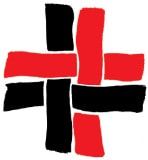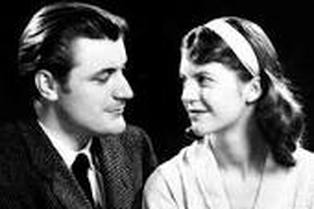In my case, it was Christopher John Dixon. If you were at Oakham School in the mid-60s, when he taught English, or at Victoria College at the University of Toronto where he was subsequently Assistant Professor of English Literature, you will know him as Chris. If you were a reader of obscure novels in the mid-70s, you will know him as Matthew Vaughan, the author of Chalky, which won the first David Higham Prize for Fiction, Major Stepton's War, and The Discretion of Dominic Ayers. All were excellent. All were unsuccessful. All appear to be out of print but not unavailable. (I commend them to you.)
Chris committed suicide. I don't know precisely why, and I didn't find out about his death until many months after it happened. But I think about him a great deal, whenever I open a volume of poetry, or pick up a literary novel or hear a learned and passionate talk on the radio or in the lecture hall.
It was Chris who introduced Sylvia Plath to me and my English literature classmates. And although we shared the usual rivalries of schoolboys at that time - Dylan v Donovan, Beatles v Stones, Truman v Statham, association v rugby football and so on - the major rivalry in our small group was Plath versus Hughes.
Chris had been at Selwyn College, Cambridge, at the same time as Plath was at the adjacent Newnham. It was rumoured at school that they had briefly dated, which might account for Chris's overt dislike for Hughes, though he was always remarkably complimentary about the poetry itself, and I still have the copies of both Ariel and Crow which he personally gave to me. But he was convinced, and convinced me, that it was Hughes who had driven Plath to suicide, and that the imminence of this suicide was evident in the poems of Ariel and could have been predicted (prevented?) by a close reading, a very practical criticism, of the text.
These days, I understand the situation to be more complex. I know that the poem Daddy was, at least in part, really about her relationship with her father as well as her relationship with her husband. And I know that Hughes was genuinely distraught and destroyed when she eventually succeeded in her suicide. “That's the end of my life” he wrote to a friend (of plath's). “The rest is posthumous.”
Maybe it was. Hughes was an axis around which suicides and potential suicides revolved. Not just Sylvia Plath, but his lover Assia Wevill (who also killed their daughter) and his son Nicholas. I once argued forcibly to a friend who knew the Hughes family that the deaths of both Plath and Wevill could not be unconnected to Hughes; must, indeed, be post hoc ergo propter hoc. My friend suggested politely and reasonably that Hughes may have been a man who attracted those with a predisposition to suicide.
There may be some truth in this.
Where there is truth is in the poems that Sylvia Plath wrote and which became owned by Hughes with the rest of her literary legacy. We are not privy to all of it: some was destroyed, some suppressed, some ’edited’.
But the link sent to me by Parn Taimsalu is to a series of readings which she made in 1962.
Dying
Is an art, like everything else.






 RSS Feed
RSS Feed